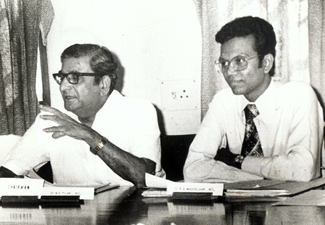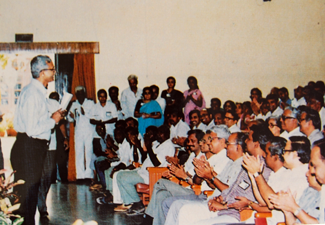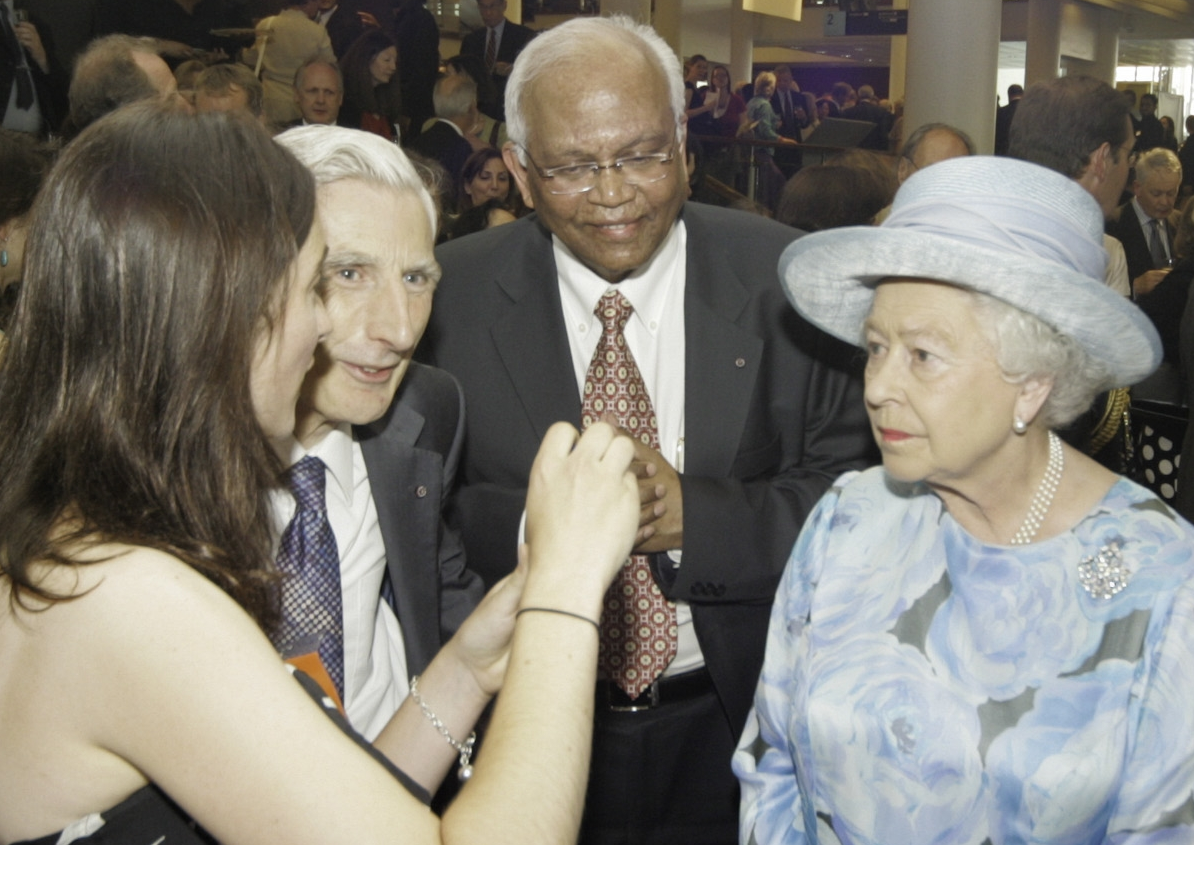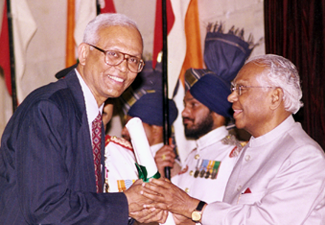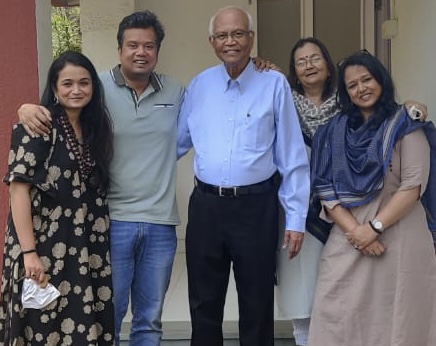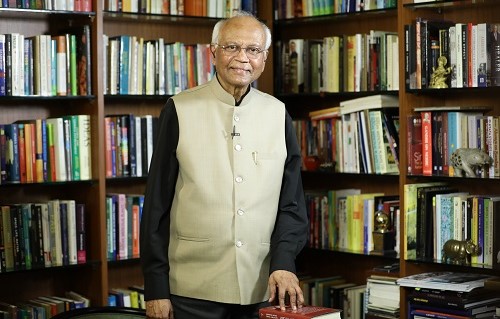
- Former Director General, Council of Scientific and Industrial Research (CSIR) (Science & Technology)
“I always tell young people to keep knocking on doors. When they don’t open, you open your own doors. Create your own windows.”
Summary
Dr. Raghunath Anant (Ramesh) Mashelkar is the former Director General of the Council of Scientific and Industrial Research (CSIR), India’s largest research and development organization. Prior to leading CSIR from 1995 to 2006, Dr. Mashelkar was Director of the National Chemical Laboratory (NCL), one of the council’s constituent members. He has also been Chairman of the National Innovation Foundation and President of the Indian National Science Academy. Dr. Mashelkar begins the interview with the start of his professional journey as a scientist at CSIR. Returning to the country after teaching Chemical Engineering in the UK, he outlines the initial challenges that he encountered in a pre-liberalized India from regulatory barriers to the lack of foreign exchange which limited access to laboratory equipment. Despite the constraints, Dr. Mashelkar’s achievements in modeling and simulation led to a Bhatnagar prize in 1982, the highest-level award in India for scientists under 45. He views this achievement as progress in both scientific and industrial research, highlighting how they go hand-in-hand.
The combination of science and industry represents a recurring theme throughout Dr. Mashelkar’s career, which he illustrates by noting that in 1998, he was both elected as a Fellow of the Royal Society in the UK for his scientific achievements and given the JRD Tata Corporate Leadership award. Speaking about his tenure as Director General of CSIR, Dr. Mashelkar asserts that he increased the number of laboratories to 40 and shifted the focus of the institution from predominantly import substitution to patenting, licensing and consulting. He contends that he changed the institutional culture from “publish or perish” to “patent, publish, and prosper.” Additionally, Dr. Mashelkar recounts how he built a “team CSIR,” noting that the 40 laboratories which he oversaw had previously competed with one another. By enacting his vision document entitled “CSIR 2001: Vision & Strategy,” he describes laying the foundation for improved coordination and goal-setting that would allow the labs to jointly boost India’s status in science and industry.
Dr. Mashelkar proceeds in the interview by speaking about his defense of Indian intellectual property rights and traditional knowledge. This began by winning the legal battle to revoke a US patent that had been granted in 1995 for wound-healing properties of turmeric. The properties, as Dr. Mashelkar argued, constituted prior knowledge passed down through generations. The legal victory with the US Patent Office led to Dr. Mashelkar’s role as Chairman of the Standing Committee on Information Technology at the World Intellectual Property Organization (WIPO) and paved the way for the Traditional Knowledge Digital Library (TKDL). The library has translated and digitized ancient texts for patent examiners, which according to Dr. Mashelkar has “put traditional knowledge in a completely different perspective.” When discussing the TKDL and traditional knowledge, he argues that his driving purpose is to merge ancient wisdom with modern science. He sees great innovative potential in bringing together an alternative system such as Ayurveda with modern medicine to prompt new drug developments and therapies.
After his retirement as Director General of CSIR in 2006, Dr. Mashelkar joined the boards of several leading companies in India including Tata Motors, Thermax Ltd., Piramal Enterprises and Reliance Industries. He details how his desire to innovate carried over into the corporate world – “wherever I went, I tried to create an innovation council to give [it] a special place.” Examples include the Reliance Innovation Council, where he instituted leadership programs such as “Beyonders” which encourages ambitious aspirations for Indian youth. He articulates that while countries such as China have outcompeted India according to measures such as the Global Innovation Index, where India was 48th out of 131 economies in 2020, investment in Indian scientific research has a comparatively high yield per-dollar. He thus expresses optimism about the future of innovation in India across a wide spectrum of industries, as he cites examples from sustainable energy production to healthcare, technology, telecommunications and more.
Video Clips by Topic
Corporate Culture
Dr. Raghunath Mashelkar, former Director General of the Council of Scientific and Industrial Research (CSIR), discusses how he re-organized and instilled a culture of cooperation among 40 CSIR laboratories starting with his “2001: Vision and Strategy” document.
Leadership
Dr. Raghunath Mashelkar, former Director General of the Council of Scientific and Industrial Research (CSIR), describes what prompted him to work with the U.S. Patent Office and World Intellectual Property Organization (WIPO) to promote greater recognition of intellectual property rights for traditional knowledge.
Innovation
Dr. Raghunath Mashelkar, former Director General of the Council of Scientific and Industrial Research (CSIR), speaks on competition between India and China as it relates to innovation, arguing that investment from industry should be increased to bolster India’s global stance in Research & Development.
Additional Resources
- Dr. R. A. Mashelkar's Website
- Anjani Mashelkar Foundation Website
- R. A. Mashelkar. "The crucial role of hydrogen in India's clean energy transition | Raghunath Mashelkar | TEDxGateway" TEDxTalks. December 2021.
- R. A. Mashelkar & R. Pandit (2018). From Leapfrogging to Pole-vaulting: Creating the Magic of Radical yet Sustainable Transformation. Penguin Random House India Private Limited.
- R. A. Mashelkar "India needs ASSURED Innovation Policy" National Institute of Science Communication and Information Resources. May 2018.
- R. A. Mashelkar & A. Madgavkar. "Closing India’s technology gap" Mint. December 19, 2014.
- R.A. Mashelkar (2011). Reinventing India. Sahyadri Publications, Pune, India.
- C.K. Prahalad & R.A. Mashelkar. "Innovation’s Holy Grail" Harvard Business Review Magazine, July-August 2010.
- R. A. Mashelkar. "Breakthrough designs for ultra-low-cost products" TEDIndia. November 2009.
- R. A. Mashelkar. "Building a national innovation ecosystem" Nature India. August 5, 2009.
Interview Citation Format
Interview with Dr. Raghunath Anant Mashelkar, interviewed by Tarun Khanna, Pune, India and Boston, MA, USA, 30 June 2022. Creating Emerging Markets Oral History Collection, Baker Library Special Collections, Harvard Business School, https://www.hbs.edu/creating-emerging-markets/Pages/default.aspx.

